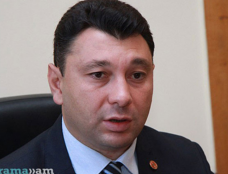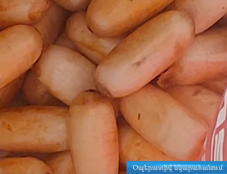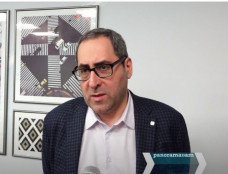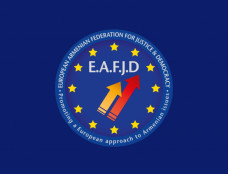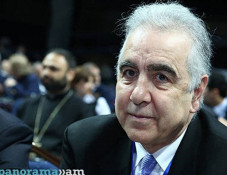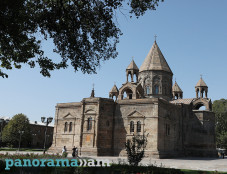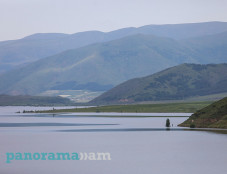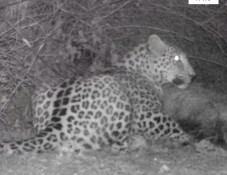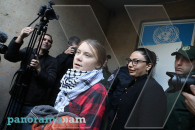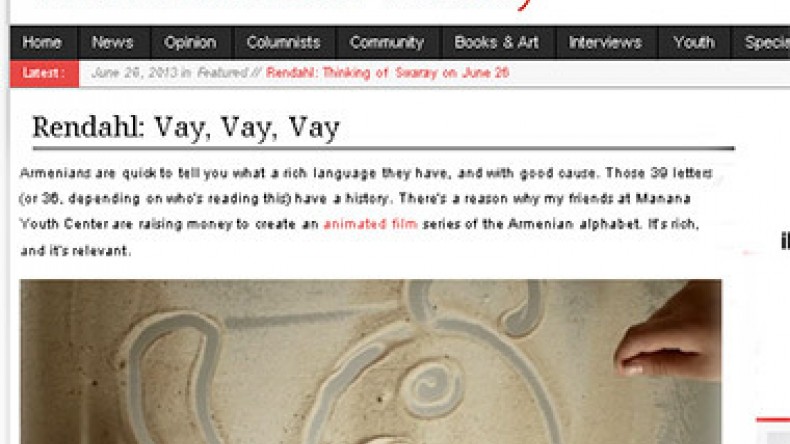
Rendahl: Vay, Vay, Vay
Kristi Rendahl for The Armenian Weekly
Armenians are quick to tell you what a rich language they have, and with good cause. Those 39 letters (or 36, depending on who’s reading this) have a history. There’s a reason why my friends at Manana Youth Center are raising money to create an animated film series of the Armenian alphabet. It’s rich, and it’s relevant.
There are a few Armenian expressions that stand out from the rest for me. Words that are the only appropriate way to convey something, whether I’m speaking with an Armenian or an American or a Liberian. “You’re speaking from a warm place,” I’ll say in English, explaining that it’s an Armenian expression for someone who is in a convenient position to have a given attitude or belief.
“May you grow old on one pillow,” I say to bewildered newlyweds. “It’s a…nevermind,” I follow, and wave away the words with my hand, “Congratulations.”
Then there are the words that symbolize something deeper than the sum of its letters. Words that are telling of the culture. And words that are hilariously accurate. These are the words that I love in the Armenian language.
If you’ve been to Armenia, you’ll surely agree that “tsavt tanem” deserves to be on my list. Where else in the world are so many people willing to take your pain? You may be skeptical about the authenticity of this offer; nonetheless, the fact that so many passersby, cab drivers, and grandmothers I meet on the street suggest such an arrangement gives me immediate joy. The fact that it is generally followed by terms of endearment rarely used in the English language makes me laugh out loud nearly every time. And so their mission is accomplished. They have eliminated whatever pain I had.
When describing Armenians to people, one of the first words off my tongue is hospitable. Militant hospitality, I say with affection. Hyuraser is such a literal description of this concept—to love guests. I stayed with an Armenian family in Damascus some years ago. Once they’d caught word I was in town, they came and announced that I would stay with them, so I went directly to collect my bags. Sure, I tried refusing the offer a few times, but it was hopeless. Hyuraser people don’t let you off easily. When I left a couple days later, the father took me to the train station where he said in earnest, “We hold guests up here,” raising his hands above his head, and tears came to his eyes.
Unknowingly, my friend Ashot, president of the Fuller Center for Housing in Armenia, was the person who made sure that the word for friend–unker–became one of my favorite words. His parents were Armenian-language teachers, and he learned their lessons well. Ker (eat) is a command that anyone at an Armenian table hears on average 5-10 times per meal. Someone is a true enker, he told me 12 or 13 years ago, when they have come together to eat. His sharing this explained so much about my years of endless eating in Armenia.
Ktamaz is one of the funnier words I’ve learned in Armenian. Used to describe someone incredibly anal retentive, “nose hair” is without a doubt a superior term to its English counterpart. To be sure, I’ve rarely been on the receiving end of this particular description. I’m more likely to be quoted saying Voltaire’s famous words: “Perfection is the enemy of the good.”
Ojakh (hearth, Ed.) is the word for “home,” as juxtaposed with the physical structure of a house or an apartment. On the surface, this isn’t that important of a distinction. But the Armenian view of a home, especially in the rural context, is intensely personal. While talking with women farmers in the region of Kotayk, one woman made a comment that I’ve heard many times over: “We prefer to build our homes with our own hands. Then it is our own.” Ojakh is more than a building in which to reside. It a safe and nurturing place where you grow generations.
Last, and in some ways the least, is the diminutive of most any Armenian word or name, achieved by adding ik (or ig for Western Armenian speakers) to the end of the word. Anushik, Kristik, janik, sirunik, or, like the beloved editor of this paper, Khatchig. On more than one occasion, this little addition has caused me to feel younger and more cherished than reality would normally allow. Having just celebrated another birthday, perhaps I should consider a formal name change to provide this rhetorical fountain of youth.
When I first arrived in Armenia, I was terrified of the language, its alphabet, its utter foreignness. But now, I find comfort in it some days. Its emotional breadth and depth allows me to say things I only felt before, to delight when I once would scarcely have blinked.
So with that, anushik enker, I go. Until we meet in my ojakh or yours, I take your pain, janus. Now go eat.
Newsfeed
Videos






